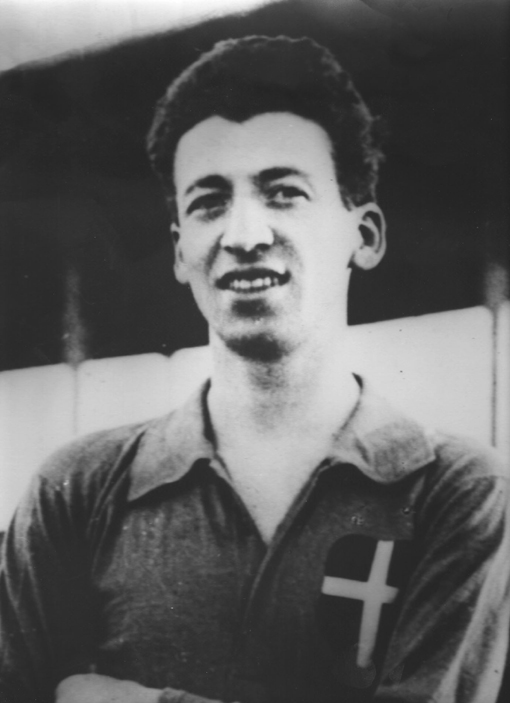Despite his small build, Moscardini was a strong, powerful striker and during his five years with Lucchese, he was selected for the Italian post war national team. He made his international debut in 1921 against Switzerland, becoming one of the earliest Oriundi – a term coined for foreign born players who play for Italy thanks to their ancestry. While many Oriundi traditionally came from South America, Moscardini broke the mold, becoming the first Scottish-born player to represent the Azzurri. To this day, he remains the only Scotsmen to play for Italy despite my many years of trying.
He would go on to score seven goals in nine appearances for the national team, a strike rate that would make any of today’s superstars proud. In 1925, Moscardini marked his final appearance for the Azzurri with two goals in a 7-0 demolition of France. During this time, Moscardini had moved from Lucchese to another Tuscan side, Pisa, where the Scotsmen became the top-scorer with 18 goals during the 1924/25 season. Having impressed in Tuscany once again, the prolific scorer would go on to join one of the country’s biggest and most prestigious clubs, Genoa.
However complications in Moscardini’s career soon arose. The man from Falkirk had got married while playing for Pisa in 1924 and at the time, the life of a footballer was a far cry from what we are accustomed to today. Indeed, the professional game in Italy was more or less non-existent. Having also documented Moscardini’s story, Giancarlo Rinaldi references a quote from Johnny’s nephew, Gian Piero Giannotti, explaining Moscardini’s somewhat modest deal at Lucchese.
“They gave him the return train ticket from Mologno to Lucca, if they won they gave him a bottle of olive oil, if they drew he got a bottle of wine, and if they lost he got nothing.”
It’s a situation unthinkable to the multi-millionaire professionals today. But this presented Moscardini with a conundrum: should he pursue a career in football or return to Scotland and continue the family business of running a shop? After his spell with Genoa, Moscardini’s lack of income forced him to choose the latter and he moved back to Scotland.
He originally settled in Campbeltown where he managed his Uncles shop before heading to the South West coast and the seaside town of Prestwick. It was here he set up ‘The Lake Café’ on the town’s main street; little did the locals know that they had a famous Italian footballer running their local café. ‘Johnny’ would spend the rest of his days in South Ayrshire before passing away in 1985 at the age of 88.
Despite being relatively unknown in Scotland, Moscardini is still held in very high regard in Barga, so much so that the local football stadium was named after the forward. The tribute gives you an idea of just how much this Scottish pioneer did for this small Tuscan town and he remains one of the most famous names to be associated with Barga.
Being a son of Prestwick myself, I would love to have been around 40 years earlier to meet the great man himself and pay a visit to The Lake Café. Instead a trip to Barga to visit ‘The Giovanni Moscardini Stadium’ is certainly on the cards.

